MURDER,
SHE SAID

If you want to discuss murder, said Raymond, you must talk to my Aunt Jane.
 Greenshaws Folly
Greenshaws Folly
Published by HarperCollins
Publishers Ltd 1 London Bridge Street London SE1 9GF www.harpercollins.co.uk First published 2019 The AC Monogram Logo is a trade mark and AGATHA CHRISTIE, MARPLE and the Agatha Christie Signature are registered trademarks of Agatha Christie Limited in the UK and elsewhere. Copyright Agatha Christie Limited 2019 All rights reserved. www.agathachristie.com Agatha Christie asserts the moral right to be identified as the author of this work. A catalogue copy of this book is available from the British Library. All rights reserved under International and Pan-American Copyright Conventions.
By payment of the required fees, you have been granted the non-exclusive, non-transferable right to access and read the text of this e-book on screen. No part of this text may be reproduced, transmitted, down-loaded, decompiled, reverse engineered, or stored in or introduced into any information storage and retrieval system, in any form or by any means, whether electronic or mechanical, now known or hereinafter invented, without the express written permission of HarperCollins. Source ISBN: 9780008356323 Ebook Edition 2019 ISBN: 9780008356347 Version: 2019-08-15
CONTENTS
 Miss Marple was not in any way a picture of my grandmother; she was far more fussy and spinsterish than my grandmother ever was. But one thing she did have in common with her though a cheerful person, she always expected the worst of everyone and everything, and was, with almost frightening accuracy, usually proved right.
Miss Marple was not in any way a picture of my grandmother; she was far more fussy and spinsterish than my grandmother ever was. But one thing she did have in common with her though a cheerful person, she always expected the worst of everyone and everything, and was, with almost frightening accuracy, usually proved right. Agatha Christie
An Autobiography A gatha Christies
other great detective, Miss Jane Marple, first appeared in December 1927 in a series of short stories published in the
Royal magazine. Christie herself suggested that Miss Marple should be seen as a shrewder version of Caroline Sheppard, a woman whose brother helped a certain retired Belgian police officer to investigate
The Murder of Roger Ackroyd (1926). Miss Sheppard had been Agatha Christies
favourite character in the book an acidulated spinster full of curiosity, knowing everything, hearing everything: the complete detective service in the home, someone in fact very much like the friends of Agatha Christies much loved step-grandmother, Auntie-Granny Margaret Miller, whose influence can also be detected in the character of Miss Marple.
In the first story which she appears, The Tuesday Night Club, Miss Marple is discovered at home in Danemead, her house in the pretty village of St Mary Mead. She is sitting erect by the hearth in a room with broad black beams across the ceiling, furnished with good old furniture that belonged to it. She is knitting and wearing a black brocade dress, very much pinched in around the waist. Mechlin lace was arranged in a cascade down the front of the bodice. She had on black mittens, and a black lace cap surmounted the piled-up masses of her snowy hair. Tonight she has a visitor, the writer Raymond West who is her favourite nephew, and this evening they are entertaining some of Raymonds friends.
Miss Marple almost passes unnoticed in the groups discussion of one unsolved mystery after another until in each case she, and she alone, points unerringly to the truth by applying the insights into human nature that she has gained from a lifetime of observation. An old lady with a sweet, placid spinsterish face, and a mind that has plumbed the depths of human iniquity. Sir Henry Clithering, The Body in the Library Although the precise date of her birth would seem to be unknowable, there are several glimpses of Miss Marples early life in the twelve novels and twenty short stories in which she appears. We know that Jane Marple was born in the second half of the nineteenth century and that, with her sister, she was home-schooled by Miss Ledbury and other governesses. When she was a little older, Jane was sent to a boarding school in Florence where she learned French and, with her hair in pigtails, she was taught decimals and English literature by a German governess. Although Jane appears to have had only the one sibling, she came from a very large family and in the stories there are fleeting references to her mother and her grandmother as well as various cousins and countless aunts and uncles, great aunts and great uncles, nieces, nephews and godchildren. And while she never married, there were certainly men in her life, such as a young man she met at a croquet party who had seemed eligible but turned out to be very, very dull.
Jane was anything but dull. She enjoyed dancing, opera at Covent Garden and the theatre. Jane was not without a sense of the theatrical herself. She had a fondness for practical trickery and a talent for mimicry which would one day save someones life. She read widely, including books by Jerome K. Jerome and, as an adult, those of Dashiell Hammett.
She enjoyed poetry and could quote from Swinburne and Shakespeare as well as from the Bible, which she would sometimes misquote for her own amusement. Jane appreciated art, particularly the art of the magician, and enjoyed conjuring tricks, cinema and Madame Tussauds, the wax museum in London. As a child, Jane very much enjoyed going shopping at the Army & Navy Store in Victoria with her Aunt Helen, whose husband was Canon of Ely Cathedral, and she sometimes stayed with another uncle who was Canon of Chichester Cathedral. Clearly, hers was a very Christian family and, when she was a child, a biblical homily was pinned above her bed Ask and you shall receive. It was a text Jane Marple would keep in mind throughout her life: if she was in trouble, she would say a little prayer and she maintained that she always received an answer. Shes had a long life of experience in evil, in noticing evil, fancying evil, suspecting evil and going forth to do battle with evil. Chief Inspector Fred Davy, At Bertrams Hotel Significantly, given her later commitment to rooting out evil, Jane Marple never had any doubt that those who commit the severest of crimes should receive the severest of punishments and she was more than ready herself to be ruthless in the cause of justice, even to the extent of setting traps and lying. Shes had a long life of experience in evil, in noticing evil, fancying evil, suspecting evil and going forth to do battle with evil. Chief Inspector Fred Davy, At Bertrams Hotel Significantly, given her later commitment to rooting out evil, Jane Marple never had any doubt that those who commit the severest of crimes should receive the severest of punishments and she was more than ready herself to be ruthless in the cause of justice, even to the extent of setting traps and lying.
Though she was raised in a city, Miss Marple spent most of her life in the country, in the village of St Mary Mead, which her nephew regarded as the kind of village where nothing ever happens. Exactly like a stagnant pond

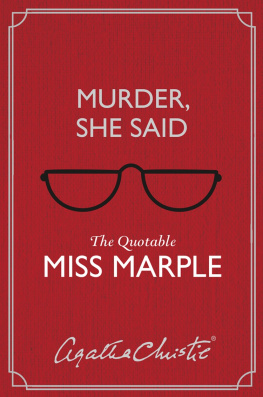
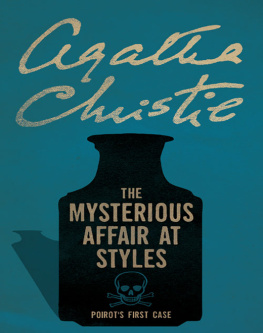
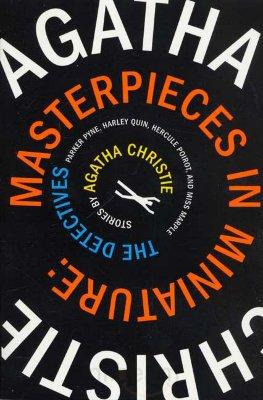
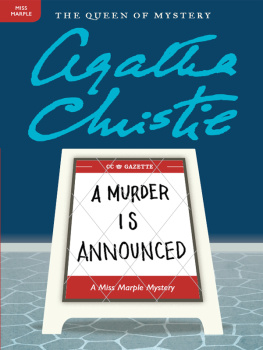
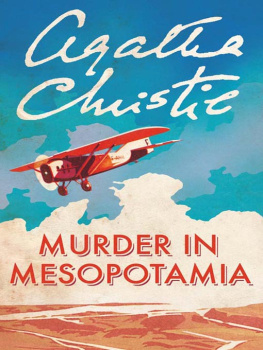
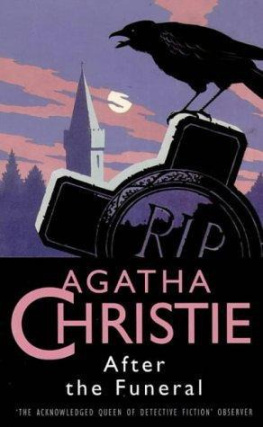
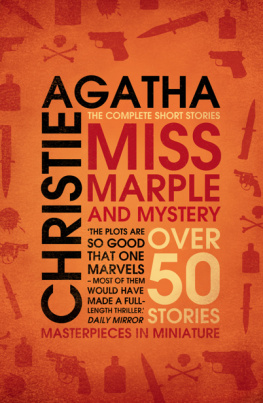
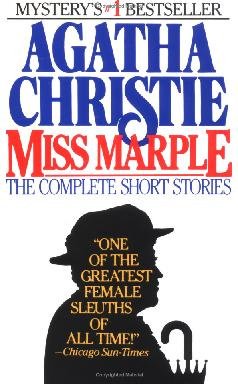
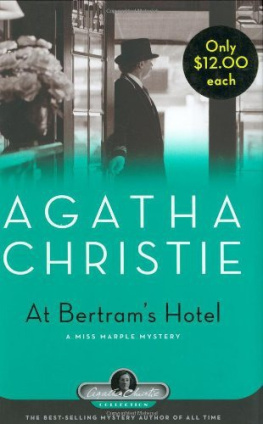
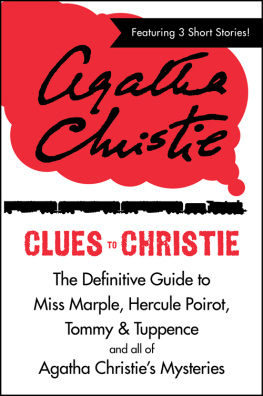
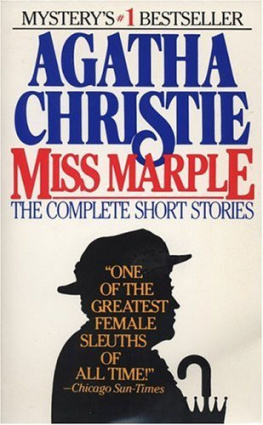

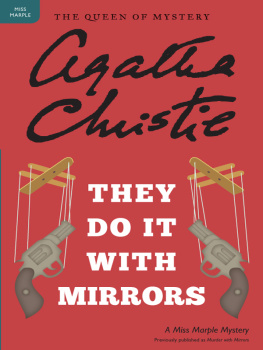
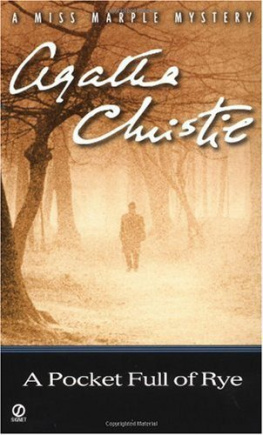
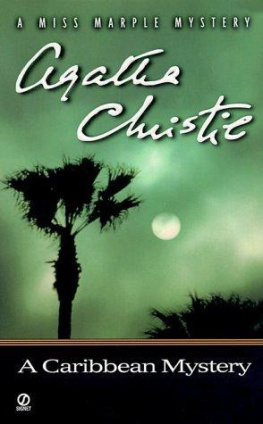
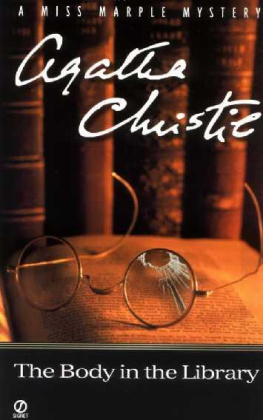
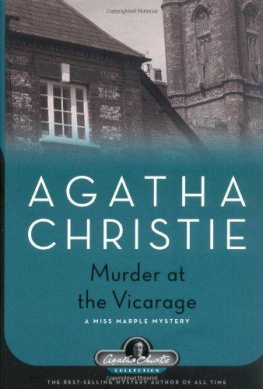

 If you want to discuss murder, said Raymond, you must talk to my Aunt Jane.
If you want to discuss murder, said Raymond, you must talk to my Aunt Jane.  Greenshaws Folly
Greenshaws Folly Published by HarperCollinsPublishers Ltd 1 London Bridge Street London SE1 9GF www.harpercollins.co.uk First published 2019 The AC Monogram Logo is a trade mark and AGATHA CHRISTIE, MARPLE and the Agatha Christie Signature are registered trademarks of Agatha Christie Limited in the UK and elsewhere. Copyright Agatha Christie Limited 2019 All rights reserved. www.agathachristie.com Agatha Christie asserts the moral right to be identified as the author of this work. A catalogue copy of this book is available from the British Library. All rights reserved under International and Pan-American Copyright Conventions.
Published by HarperCollinsPublishers Ltd 1 London Bridge Street London SE1 9GF www.harpercollins.co.uk First published 2019 The AC Monogram Logo is a trade mark and AGATHA CHRISTIE, MARPLE and the Agatha Christie Signature are registered trademarks of Agatha Christie Limited in the UK and elsewhere. Copyright Agatha Christie Limited 2019 All rights reserved. www.agathachristie.com Agatha Christie asserts the moral right to be identified as the author of this work. A catalogue copy of this book is available from the British Library. All rights reserved under International and Pan-American Copyright Conventions.